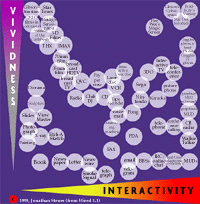 Susan Crawford hits the broadband nail on the head:
Susan Crawford hits the broadband nail on the head:
What content-delivery supply-chain usefulness is broadband providing?That’s the question you get if you’re in a corporate strategy meeting trying to decide where this broadband thing fits in with your core competences. That plus they’ll be thinking purely in terms of broadband, because that’s their product, not the Internet. There’s nothing wrong with that, except when there are only a couple of first-mile ISPs deciding the answer for all their users. And the answer in such cases tends to be “video on demand” or “IPTV” or “our search engine”. Corporations are designed to maximize their own profits, not to think in terms of a supply chain that delivers participation, innovation, and prosperity for the general welfare. Continue reading—For, by Susan Crawford, Susan Crawford blog, 9 May 2007
